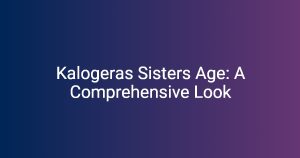In today’s society, the term iz vicious garners attention across diverse contexts—be it in literature, film, or even music. But what precisely does it mean, and why do individuals, particularly young adults, find themselves drawn to the characteristics labeled as “vicious”? This article delves into the multifaceted meanings of being iz vicious, exploring its origins, cultural significance, and manifestations in popular media.
Introduction to Iz Vicious
Definition and Origin
The term vicious typically refers to an individual exhibiting aggressive or cruel behavior. Over time, this concept has evolved, and the phrase iz vicious has emerged, often used to describe a persona that is not only fierce but also captivating. Culturally, this euphemism can represent a broader spectrum—from strong anti-heroes in film to rebellious figures in music. The historical significance of such personas often echoes a time when society glorified figures of rebellion and strength, providing an intriguing juxtaposition to more restrained ideals.
The Appeal of Viciousness
Humans are naturally fascinated by extremes—stories that capture aggressive or formidable characters often resonate with audiences. Think about some of the most popular films and books that feature anti-heroes or villains; people are drawn to the complexity and moral ambiguities of these characters. By analyzing media portrayals, such as films like “The Dark Knight” or novels featuring intense protagonists, we begin to understand the allure of being iz vicious.
The Characteristics of an ‘Iz Vicious’ Persona
Defining Traits
To comprehend what it means to embody iz vicious, we can identify several defining traits:
- Aggressiveness: Individuals who showcase bravado and dominance often attract attention.
- Charisma: A magnetic personality can elevate even the most problematic traits, making them seem appealing.
- Unpredictability: The excitement of not knowing what a person will do next often keeps others engaged.
Psychological Aspects
The motivations behind cultivating a vicious persona often stem from various psychological factors. Upbringing, experiences, and environmental influences can play critical roles in shaping this identity. For instance, one can look at characters like Heath Ledger’s Joker in “The Dark Knight”—his vicious background and actions speak volumes about how environment impacts behavior.
Manifestations of Iz Vicious in Popular Culture
Literature & Film
Numerous characters embody the ‘vicious’ trope in literature and film. From Shakespeare’s “Macbeth” to modern anti-heroes in superhero films, these characters express motivations ranging from vengeance to lust for power. A thorough analysis reveals the repercussions their actions have on the narrative and the audiences. For example, anti-heroes often initiate a moral dialogue about right and wrong, forcing viewers to reconcile with dark themes.
Music and Performance Art
Artists increasingly embrace the concept of iz vicious in their work. From heavy metal bands to rap artists, songs often explore themes of intensity, aggression, and resilience. Take Eminem’s lyrics, which reflect struggles alongside vicious rhetoric. These artists channel their personal battles into performances, creating a resonance with fans who share similar experiences.
Social Implications of Iz Vicious
Perception in Society
Society often holds varied views of individuals characterized as vicious. While some see them as strong or admirable, others may perceive them through a lens of negative stereotypes. The duality of these perceptions significantly impacts collective behavior towards individuals fitting this mold.
Impact on Relationships and Community
A vicious persona can affect personal relationships, often leading to rocky dynamics. Whether in friendships or workplaces, the invasive nature of aggression can foster an environment rife with tension and hostility, particularly in extended communities like online forums, where anonymity can prompt vicious behavior.
The Line Between Being Vicious and Toxic
Distinguishing Factors
While characteristics of iz vicious personas can seem alluring, it’s crucial to differentiate between vicious and toxic behaviors. Toxicity often refers to actions that are harmful to others without justification or purpose. For instance, while an aggressive character might act out of self-defense, a toxic individual seeks to harm without cause.
The Consequences of Toxicity
The long-term effects of toxic behavior can reverberate throughout communities. They can create lasting damage to friendships and hinder the development of trust and collaboration. Acknowledging the difference between vicious and toxic can pave the way for individuals seeking rehabilitation rather than isolation.
Embracing or Rejecting Iz Vicious
Empowerment through Viciousness
Some individuals perceive the embodiment of iz vicious as an empowering choice. It provides an avenue for channeling feelings of anger and frustration into confidence and strength. Techniques like martial arts or competitive sports can allow individuals to express aggression productively.
Backlash and Critique
Despite the empowerment narratives, arguments against the glorification of vicious behavior persist. Many advocate for softer alternatives that foster compassion and understanding, promoting emotional intelligence as a counterbalance to aggression.
Conclusion
Final Thoughts on the Iz Vicious Persona
The duality of the vicious concept elicits complex discussions about strength and vulnerability. Striking a balance is essential for fostering healthier relationships and communities while maintaining a sense of personal empowerment that resonates with the human experience.
References and Further Reading
Key Points Summary
| Aspect | Details |
|---|---|
| Definition | A persona characterized by aggressiveness, charisma, and unpredictability. |
| Cultural Significance | Reflects society’s fascination with power and rebellion. |
| Media Portrayals | Featured in films, literature, and music with both positive and negative connotations. |
| Social Implications | Vicious personas impact relationships and community dynamics. |
| Toxic vs. Vicious | Understanding the distinction is essential for constructive discourse. |
FAQs
- What does iz vicious mean? It refers to a persona characterized by aggression and charisma, often seen in popular culture.
- How does media portray vicious characters? Vicious characters are often central to narratives exploring moral complexities and human struggles.
- Is being iz vicious empowering? Some view it as empowerment, while others argue it leads to toxic behavior.
- How can one balance aggression and compassion? Techniques such as martial arts or emotional intelligence training can help.
- What are the dangers of embracing a vicious persona? It can harm relationships and contribute to toxic community dynamics.
- Are there positive portrayals of vicious characters? Yes, many stories highlight their struggles and motivations, offering complex narratives.
- What is the difference between a vicious and a toxic person? Vicious behavior can be situational and purposeful while toxic behavior is consistently harmful.
- Can a vicious persona change over time? Yes, with self-awareness and intentional effort, individuals can evolve their behaviors.
- How do societal perceptions influence vicious behavior? Societal norms can either glorify or stigmatize vicious traits, impacting how people express themselves.
- What resources can help in understanding iz vicious? Literature on psychology and culture can provide deeper insights into the topic.




